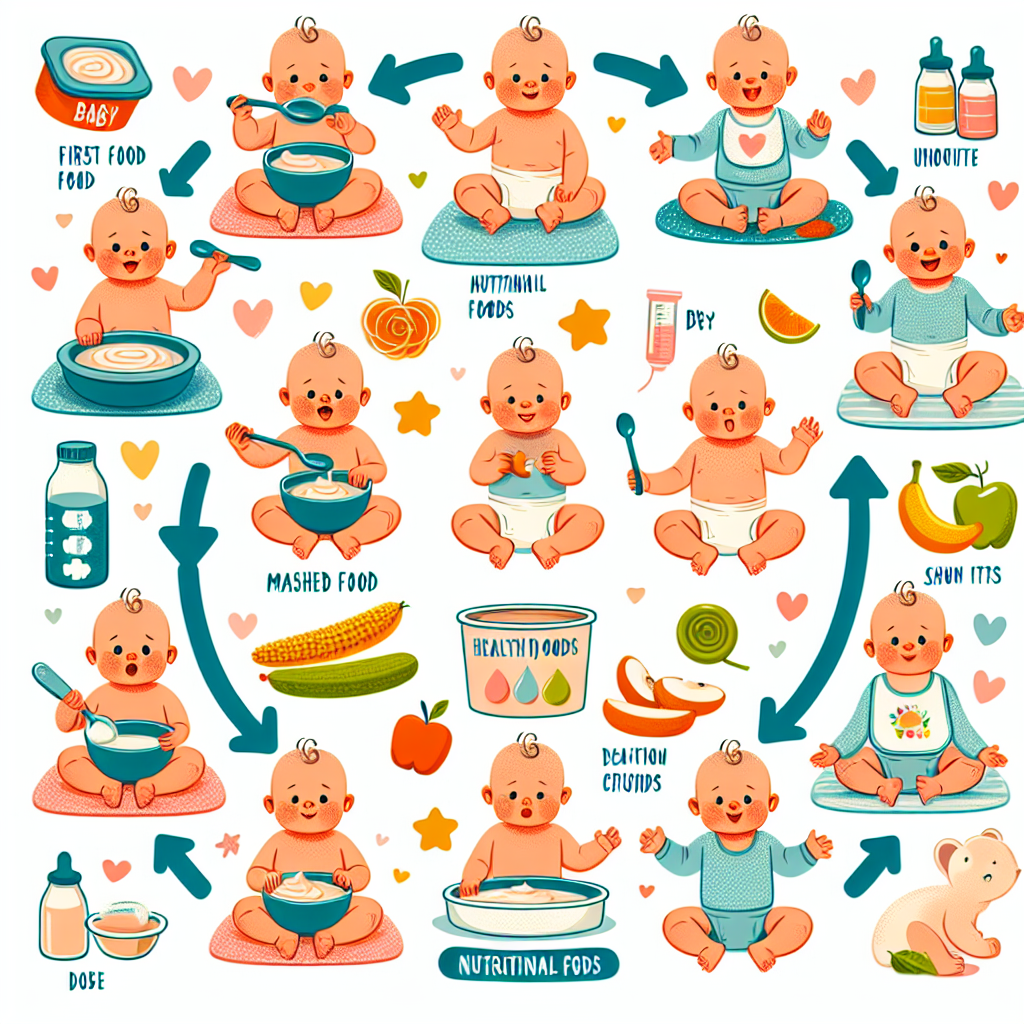Guide to Healthy Eating for Babies
Introducing solid food to your baby's diet is a significant moment in his development. From the first spoonfuls of puree to exploring solid foods, every stage of feeding is essential to your baby's healthy growth. This guide will give you the information you need to ensure your little one is getting the most nutritious and beneficial food choices.
Stages of Baby Feeding
Baby nutrition goes through several stages, each with its own particularities. From the first meals to diversifying your diet, it's important to understand what each stage entails and how to best manage it.
From Milk to First Spoons
In the first six months of life, breast milk or formula are the main sources of food for babies. This period lays the foundations for a correct and balanced diet. Therefore, it is essential to inform yourself about the benefits of breastfeeding or how to choose a milk formula suitable for the nutritional needs of your child.
Introduction of Solid Food
After six months, it is recommended to slowly introduce solid foods. This process must be graduated and respect the individual needs of each child. Start with easy-to-digest foods such as gluten-free baby cereals, fruit and vegetable purees, and then gradually move to thicker consistencies and proteins such as chicken or fish.
Diversification of Food
As your baby grows and develops, it's important to offer a variety of foods to help them get closer to them and develop a balanced diet. Gradually introduce vegetables and fruits of different colors and textures, whole grains, dairy products and various sources of protein to provide a wide range of nutrients.
The Importance of Nutrients in Baby Food
Nutrients are essential for your baby's optimal growth and development. Special attention should be paid to vitamins, minerals, proteins, fats and carbohydrates in the diet.
Vitamins and Minerals
Vitamins and minerals are crucial for the proper functioning of your little one's body. For example, vitamin D is important for bone health, while iron contributes to normal cognitive development. Make sure your child's diet includes a variety of vegetables and fruits to provide these essential nutrients.
Proteins, Fats and Carbohydrates
Proteins are the building blocks needed for tissue growth and repair, fats are important for brain development, and carbohydrates are the main source of energy. A balanced and healthy diet will include an adequate combination of these macronutrients.
Recommended and Avoidable Foods
Certain foods are better suited to baby food than others. It is essential to know which are the best options, but also which ones you should avoid.
Healthy Baby Food
Fresh fruits and vegetables, whole grains, and light proteins are excellent choices for baby meals. Vegetable and fruit purees with no added sugar are great for introducing new tastes and textures to your baby's diet.
Foods to Avoid
It is important to avoid foods that pose a choking risk, such as small, hard foods, or foods with added sugar and excess salt. Also, some foods can cause allergies, so introduce them with caution and watch your baby's reactions.
The Role of Parents in Infant Feeding
Parenthood comes with the responsibility of modeling healthy eating habits in babies. From personal example to offering a variety of foods, you as a parent have a key role in developing your child's food preferences.
Providing Personal Example
Children learn by imitation, so it is important to provide them with a positive example of eating behavior. Eat diverse and nutritious meals with them, showing them the joy of healthy eating.
Keeping Patience and Flexibility
Introducing new foods can be challenging. It's normal for babies to be reluctant at first, so be patient and give them time to adjust to new tastes and textures. Don't force feeding and allow the child to explore food at their own pace.
Creating a Positive Table Environment
Mealtime should be a pleasant and stress-free time for babies. Create a calm, relaxed, distraction-free environment that encourages food exploration and associates mealtime with positive feelings.
Conclusion
Healthy nutrition in the first years of life is fundamental for your child's physical and intellectual development. By following the feeding stages, choosing the right nutrients and avoiding the wrong foods, along with a good parental example and a patient approach, you will ensure the foundations of a correct diet for your baby. Embrace the joy of giving your child a healthy start in life through a balanced and nutritious diet!














































































































































